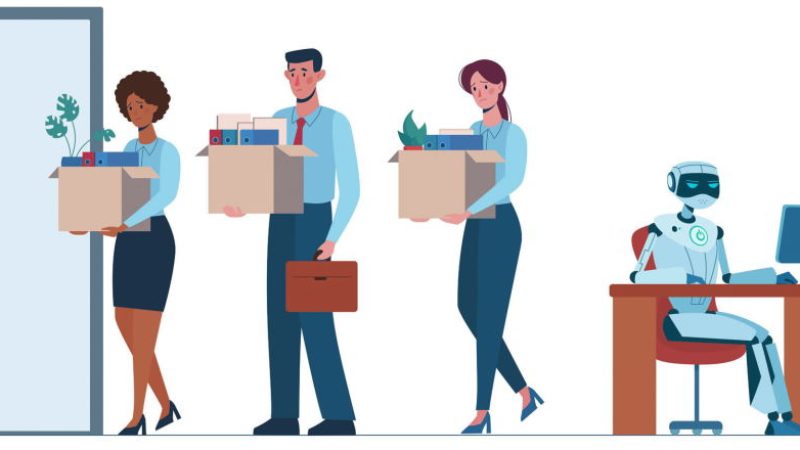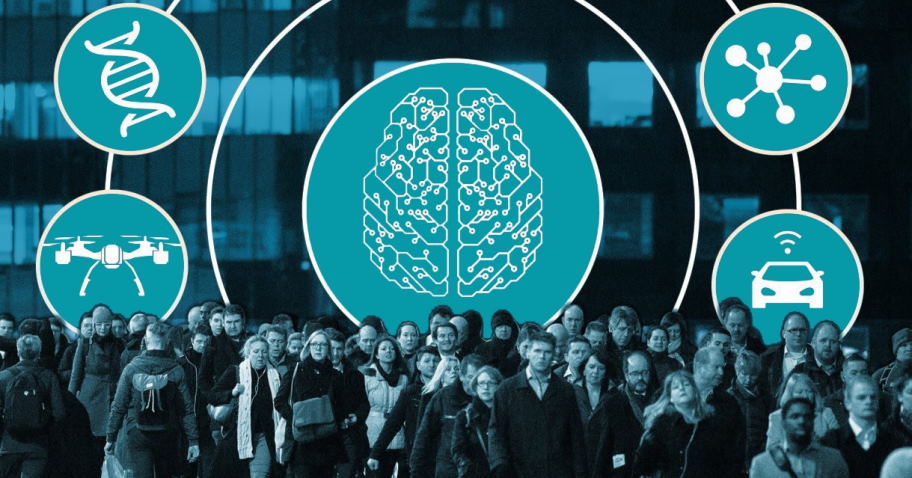The Impact of AI on Jobs and the Labor Market

The dawn of artificial intelligence is upon us, and it has serious implications for the world’s labor market. AI has the potential to radically change how work is done in many sectors, including transforming mundane tasks into automated processes that are faster, more efficient, and cheaper. But there is an equal measure of apprehension among those concerned with job losses across all industries due to its encroaching presence – a reality we cannot afford to ignore. In this blog post, we will dive deep into understanding the current impact of AI on jobs and explore how organizations must adapt if they want to remain competitive in today’s rapidly changing marketplace.
How artificial intelligence is transforming the job market
Artificial intelligence is having a profound impact on the job market. AI applications are already being used in many industries, from finance and accounting to healthcare and logistics. In addition, as AI technology advances, more companies are beginning to see the potential of automating jobs that humans would do manually. This automation can reduce costs, increase efficiency, and improve accuracy.
AI has also been used to develop new roles for employees who have traditionally held manual or low-skilled positions. For example, machine learning algorithms can be used to create data scientists who analyze large datasets and identify patterns that help inform decision-making. Similarly, natural language processing (NLP) can allow businesses to build customer service chatbots that handle simple inquiries without the need for a human customer service rep.

AI technology is also creating new opportunities for people who may not have the traditional qualifications or training required for certain roles. For example, some companies use artificial intelligence to automate customer service tasks such as scheduling appointments and confirming bookings. This means that people with no prior experience can now become customer service representatives by simply learning how to use an AI-powered system.
AI is quickly transforming the job market and opening up a world of possibilities for workers across all industries and levels of expertise. As businesses embrace this technology, it will be exciting to see what new opportunities arise in the near future.
What the rise of AI means for the future of the workforce
The rise of AI has the potential to bring about a number of changes in the way that work is done. For example, it could reduce manual labor, increase efficiency, and open up new opportunities for people to specialize in their skills and do more complex tasks. However, there are also potential risks associated with this technology, such as job displacement, increased automation leading to a widening gap between those who can access high-paying jobs and those who cannot, and ethical considerations that need to be taken into account when developing AI applications.

At the same time, it is important to remember that AI will also create jobs in many industries – healthcare and finance – that may not have existed. This means that while some roles will become automated or replaced by AI, other roles may open up that focus on creating, managing, and optimizing AI systems. This opens up a world of new possibilities for those with the right skills to take advantage of – allowing people to specialize in particular areas and become experts in AI-powered technologies.
Ultimately, the way the rise of AI will impact the workforce depends on how it is developed and used. At this stage, there is still much uncertainty around this technology, but one thing is certain: it’s here to stay, and its impact could be far-reaching. Therefore, it’s important for employers and employees to stay informed about developments in this area to make better decisions about their future or business direction.
Therefore, the future of the workforce is likely to incorporate AI in some way, and it’s important for all involved to understand the implications of this technology so they can make sure it benefits everyone. With careful consideration and guidance, AI can be a great force for good – creating new opportunities, improving efficiency and productivity, and helping employees work smarter. In any case, how we embrace this technology will determine what our future workforce looks like. So let’s prepare ourselves for an exciting journey ahead!






